Abstract
OBJECTIVES: This study was designed to identify and compare the attitudes of patients and health care professionals towards advance directives. Advance directives promote recognition of the patient's autonomy, letting the individual exercise a certain measure of control over life-sustaining care and treatment in the eventuality of becoming incompetent. DESIGN: Attitudes to advance directives were evaluated using a 44-item self-reported questionnaire. It yields an overall score as well as five factor scores: autonomy, beneficence, justice, external norms, and the affective dimension. SETTING: Health care institutions in the province of Québec, Canada. Survey sample: The sampling consisted of 921 subjects: 123 patients, 167 physicians, 340 nurses and 291 administrators of health care institutions. RESULTS: Although the general attitude of each population was favourable to the expression of autonomy, multivariate analysis of variance (MANOVA) indicated that physicians attached less importance to this subscale than did other populations (p < .001). Above all, they favoured legal external norms and beneficence. Physicians and administrators also attached less importance to the affective dimension than did patients and nurses. Specifically, physicians' attitudes towards advance directives were shown to be less positive than patients' attitudes. CONCLUSION: More attention should be given to the importance of adequately informing patients about advance directives because they may not represent an adequate means for patients to assert their autonomy.
Full text
PDF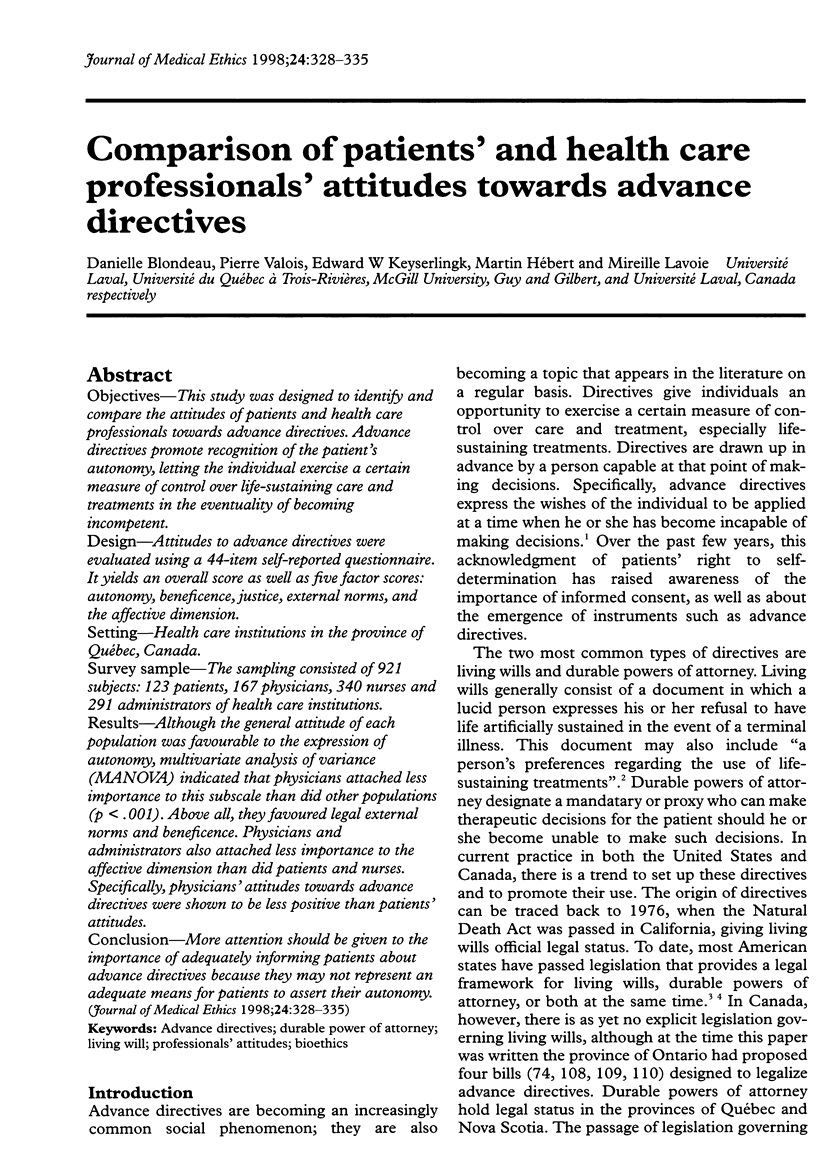
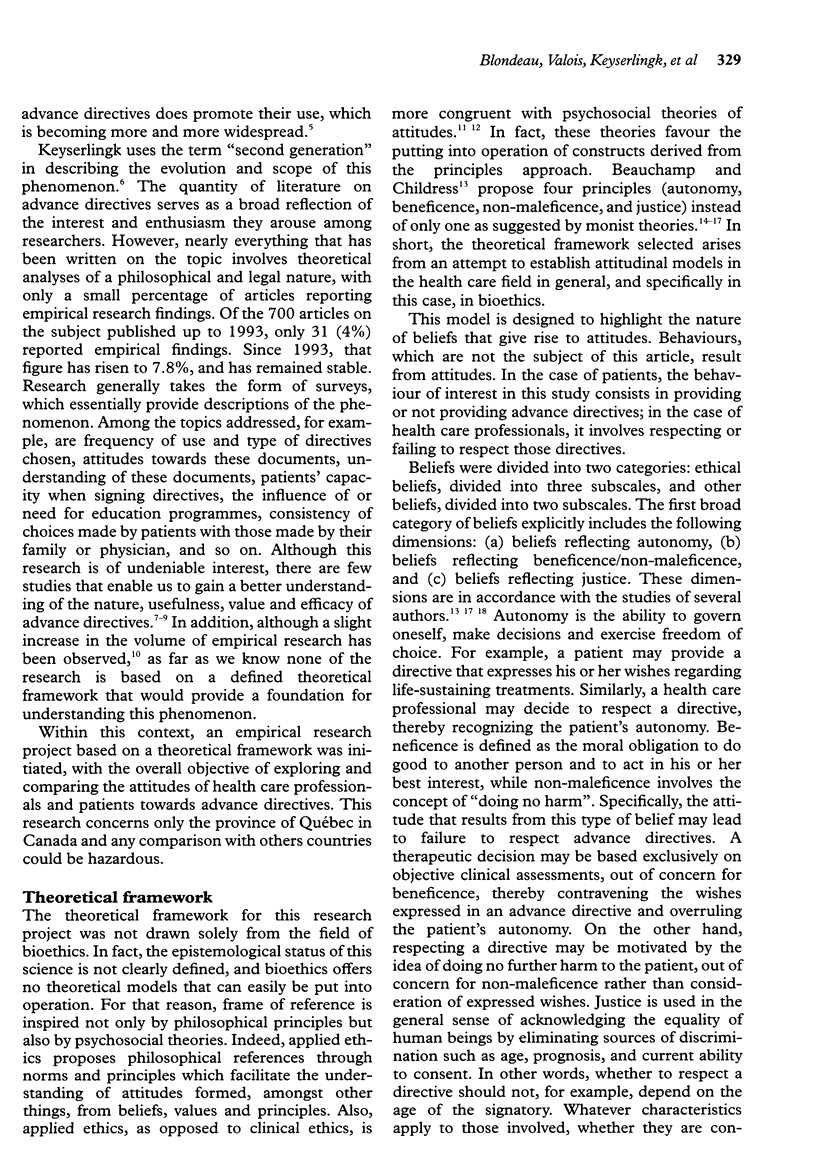
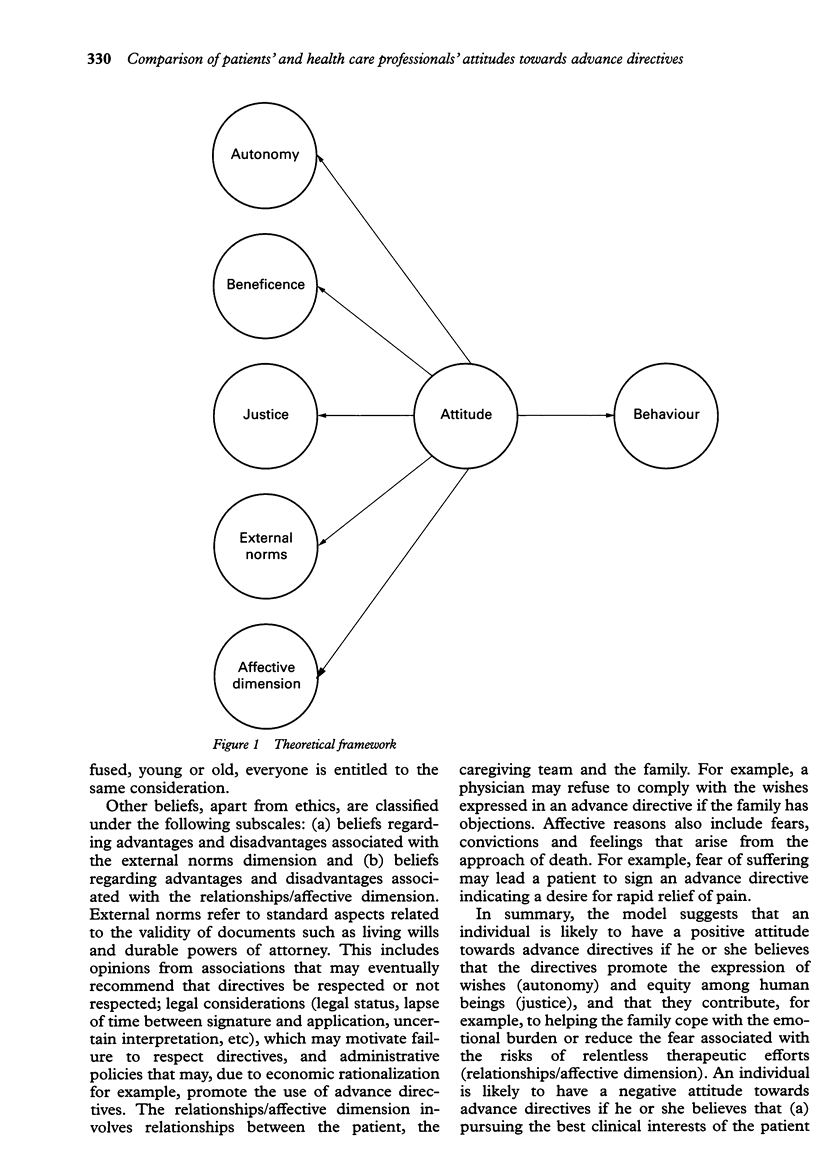
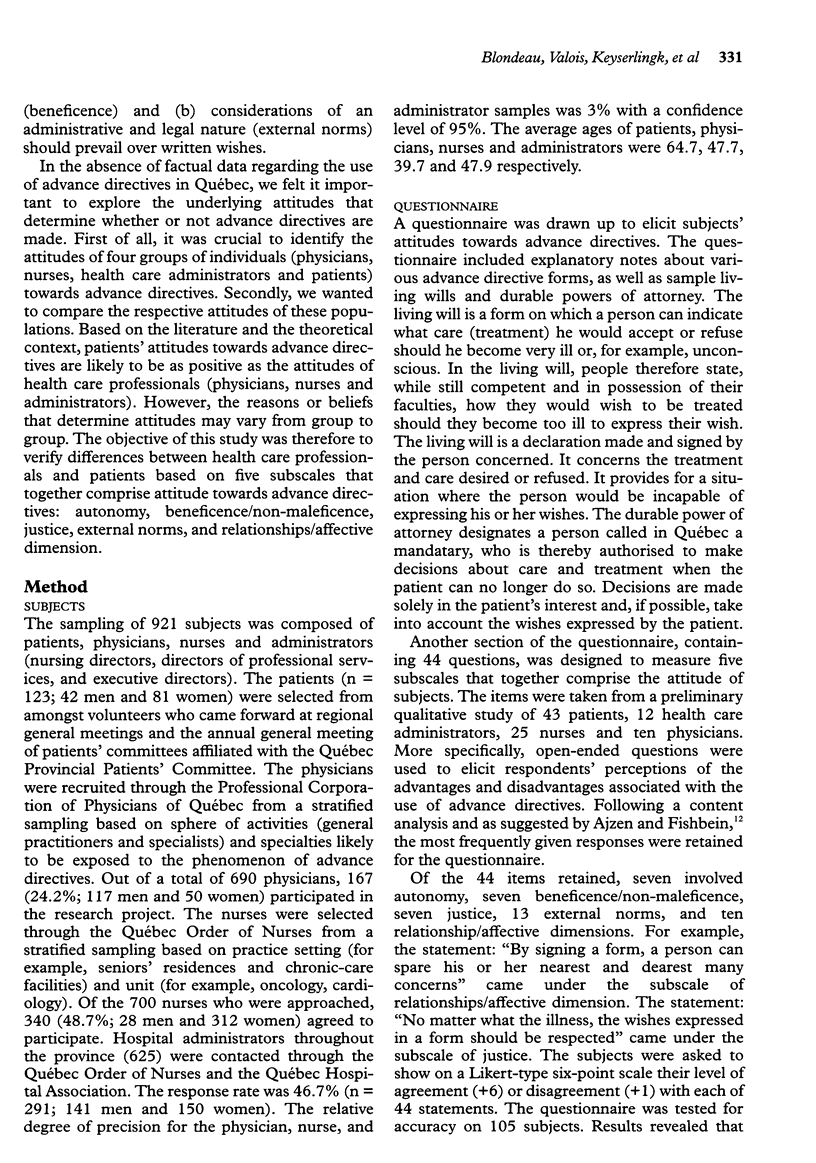
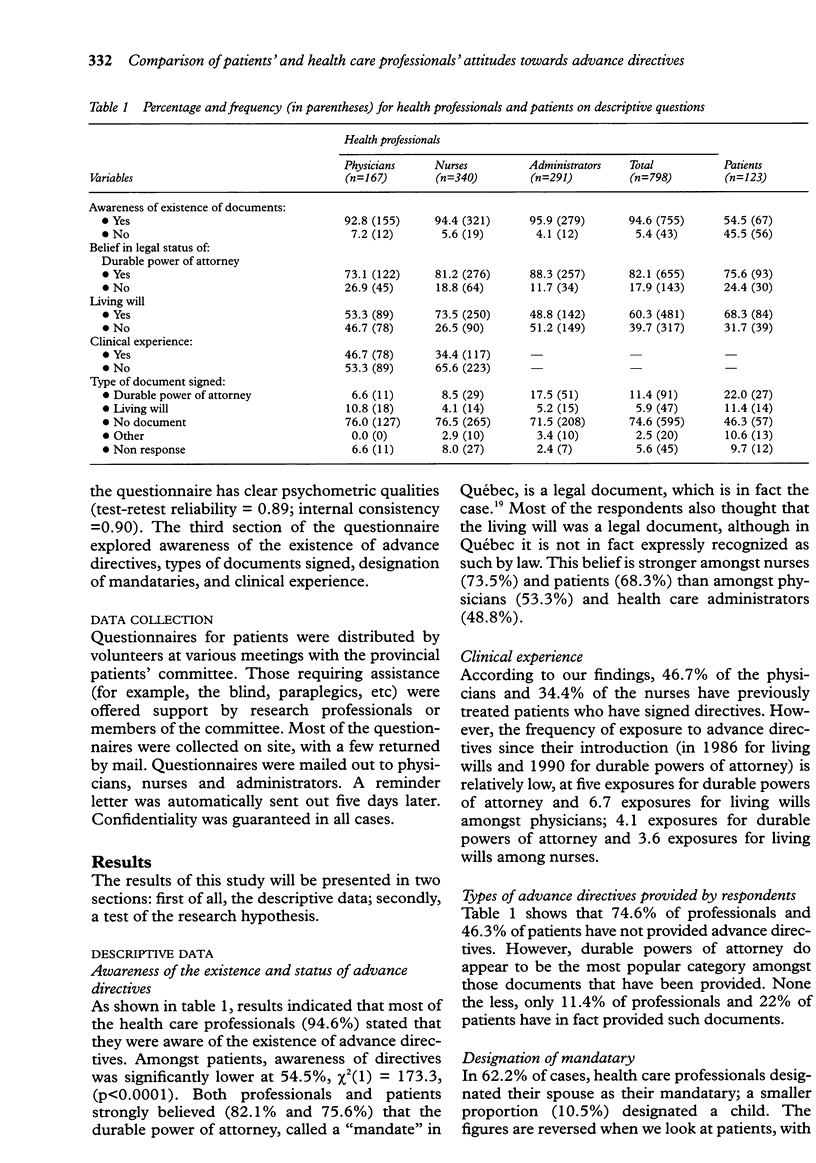
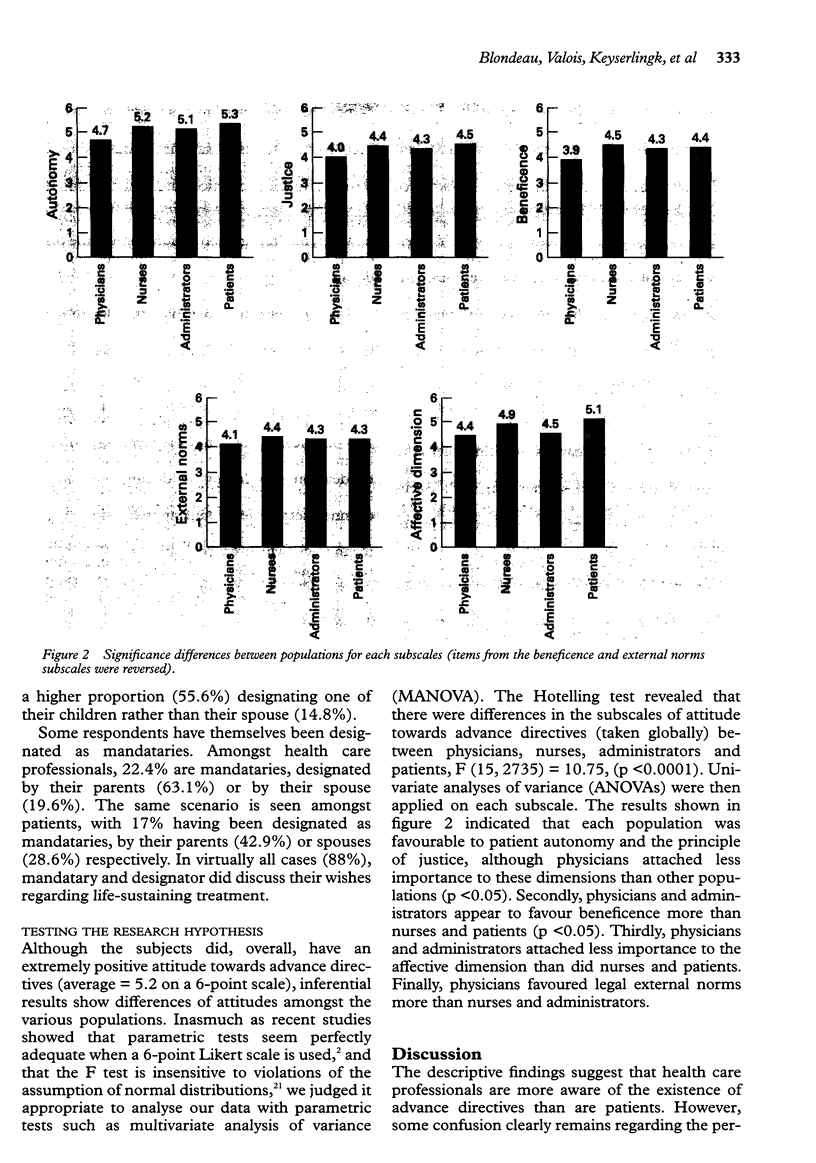
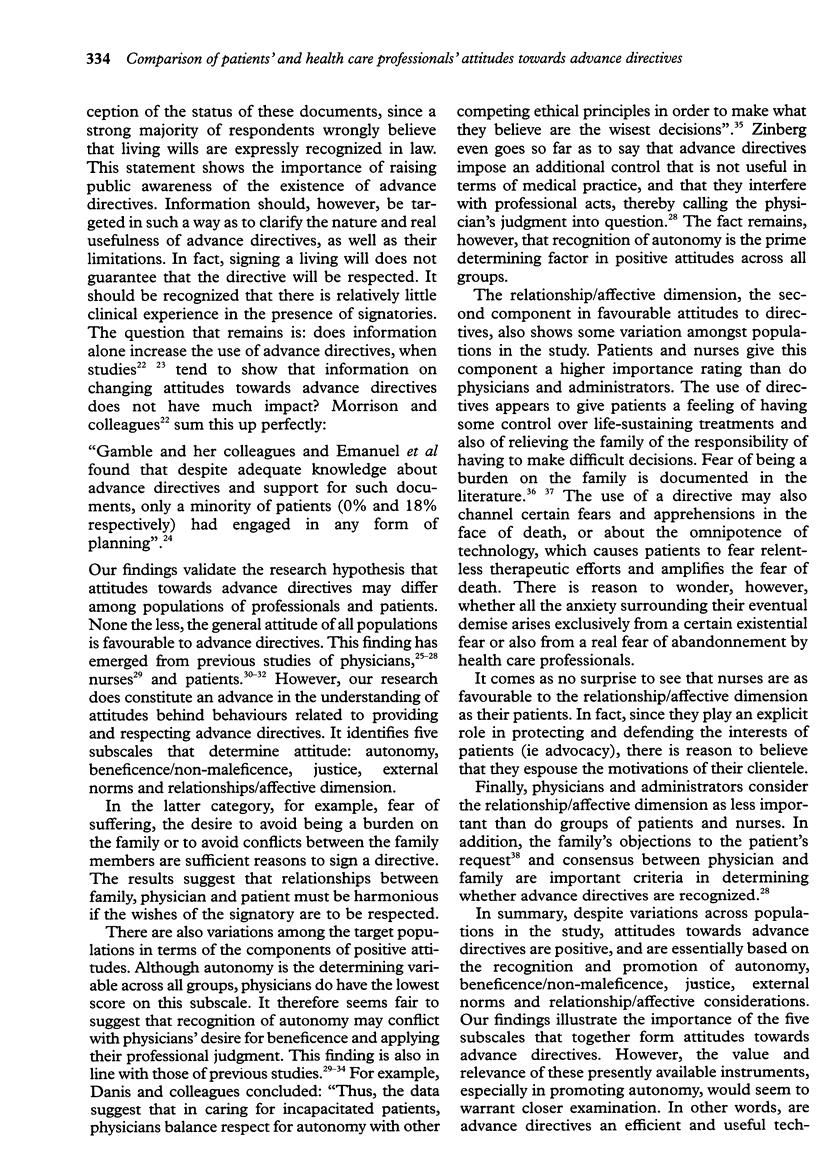
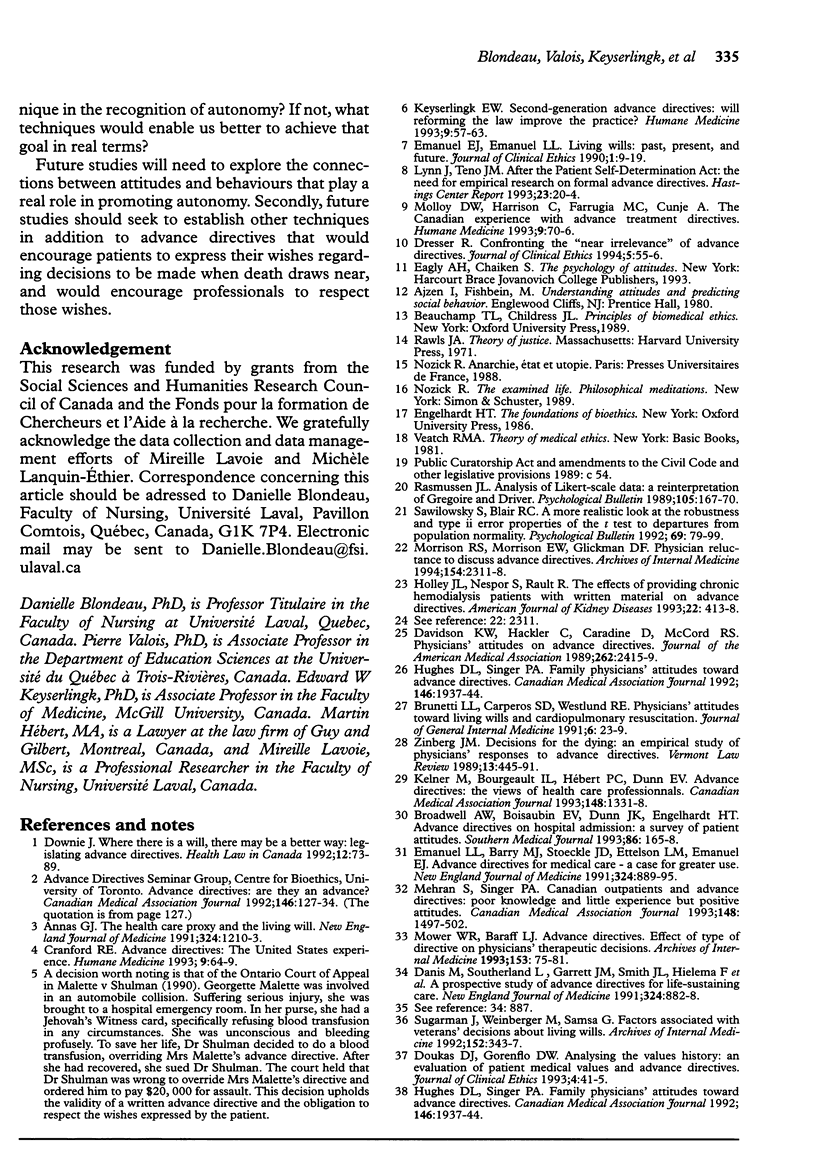
Selected References
These references are in PubMed. This may not be the complete list of references from this article.
- Broadwell A. W., Boisaubin E. V., Dunn J. K., Engelhardt H. T., Jr Advance directives on hospital admission: a survey of patient attitudes. South Med J. 1993 Feb;86(2):165–168. doi: 10.1097/00007611-199302000-00003. [DOI] [PubMed] [Google Scholar]
- Cranford Ronald E. Advance directives: the United States experience. Humane Med. 1993 Jan;9(1):64–69. [PubMed] [Google Scholar]
- Danis M., Southerland L. I., Garrett J. M., Smith J. L., Hielema F., Pickard C. G., Egner D. M., Patrick D. L. A prospective study of advance directives for life-sustaining care. N Engl J Med. 1991 Mar 28;324(13):882–888. doi: 10.1056/NEJM199103283241304. [DOI] [PubMed] [Google Scholar]
- Davidson K. W., Hackler C., Caradine D. R., McCord R. S. Physicians' attitudes on advance directives. JAMA. 1989 Nov 3;262(17):2415–2419. [PubMed] [Google Scholar]
- Doukas D. J., Gorenflo D. W. Analyzing the values history: an evaluation of patient medical values and advance directives. J Clin Ethics. 1993 Spring;4(1):41–45. [PubMed] [Google Scholar]
- Downie J. "Where there is a will, there may be a better way": legislating advance directives. Health Law Can. 1992;12(3):73-80, 89. [PubMed] [Google Scholar]
- Dresser R. Confronting the "near irrelevance" of advance directives. J Clin Ethics. 1994 Spring;5(1):55–56. [PubMed] [Google Scholar]
- Emanuel E. J., Emanuel L. L. Living wills: past, present, and future. J Clin Ethics. 1990 Spring;1(1):9–19. [PubMed] [Google Scholar]
- Emanuel L. L., Barry M. J., Stoeckle J. D., Ettelson L. M., Emanuel E. J. Advance directives for medical care--a case for greater use. N Engl J Med. 1991 Mar 28;324(13):889–895. doi: 10.1056/NEJM199103283241305. [DOI] [PubMed] [Google Scholar]
- Holley J. L., Nespor S., Rault R. The effects of providing chronic hemodialysis patients written material on advance directives. Am J Kidney Dis. 1993 Sep;22(3):413–418. doi: 10.1016/s0272-6386(12)70144-0. [DOI] [PubMed] [Google Scholar]
- Hughes D. L., Singer P. A. Family physicians' attitudes toward advance directives. CMAJ. 1992 Jun 1;146(11):1937–1944. [PMC free article] [PubMed] [Google Scholar]
- Hughes D. L., Singer P. A. Family physicians' attitudes toward advance directives. CMAJ. 1992 Jun 1;146(11):1937–1944. [PMC free article] [PubMed] [Google Scholar]
- Kelner M., Bourgeault I. L., Hébert P. C., Dunn E. V. Advance directives: the views of health care professionals. CMAJ. 1993 Apr 15;148(8):1331–1338. [PMC free article] [PubMed] [Google Scholar]
- Keyserlingk Edward W. Second-generation advance directives: will reforming the law improve the practice? Humane Med. 1993 Jan;9(1):57–63. [PubMed] [Google Scholar]
- Lynn J., Teno J. M. After the Patient Self-determination Act. The need for empirical research on formal advance directives. Hastings Cent Rep. 1993 Jan-Feb;23(1):20–24. [PubMed] [Google Scholar]
- Molloy D. William, Harrison Christine, Farrugia Martin C., Cunje Alvin. The Canadian experience with advance treatment directives. Humane Med. 1993 Jan;9(1):70–77. [PubMed] [Google Scholar]
- Morrison R. S., Morrison E. W., Glickman D. F. Physician reluctance to discuss advance directives. An empiric investigation of potential barriers. Arch Intern Med. 1994 Oct 24;154(20):2311–2318. [PubMed] [Google Scholar]
- Sam M., Singer P. A. Canadian outpatients and advance directives: poor knowledge and little experience but positive attitudes. CMAJ. 1993 May 1;148(9):1497–1502. [PMC free article] [PubMed] [Google Scholar]
- Sugarman J., Weinberger M., Samsa G. Factors associated with veterans' decisions about living wills. Arch Intern Med. 1992 Feb;152(2):343–347. [PubMed] [Google Scholar]
- Zinberg Joel M. Decisions for the dying: an empirical study of physicians' responses to advance directives. Vt Law Rev. 1989 Winter;13(2):445–491. [PubMed] [Google Scholar]


